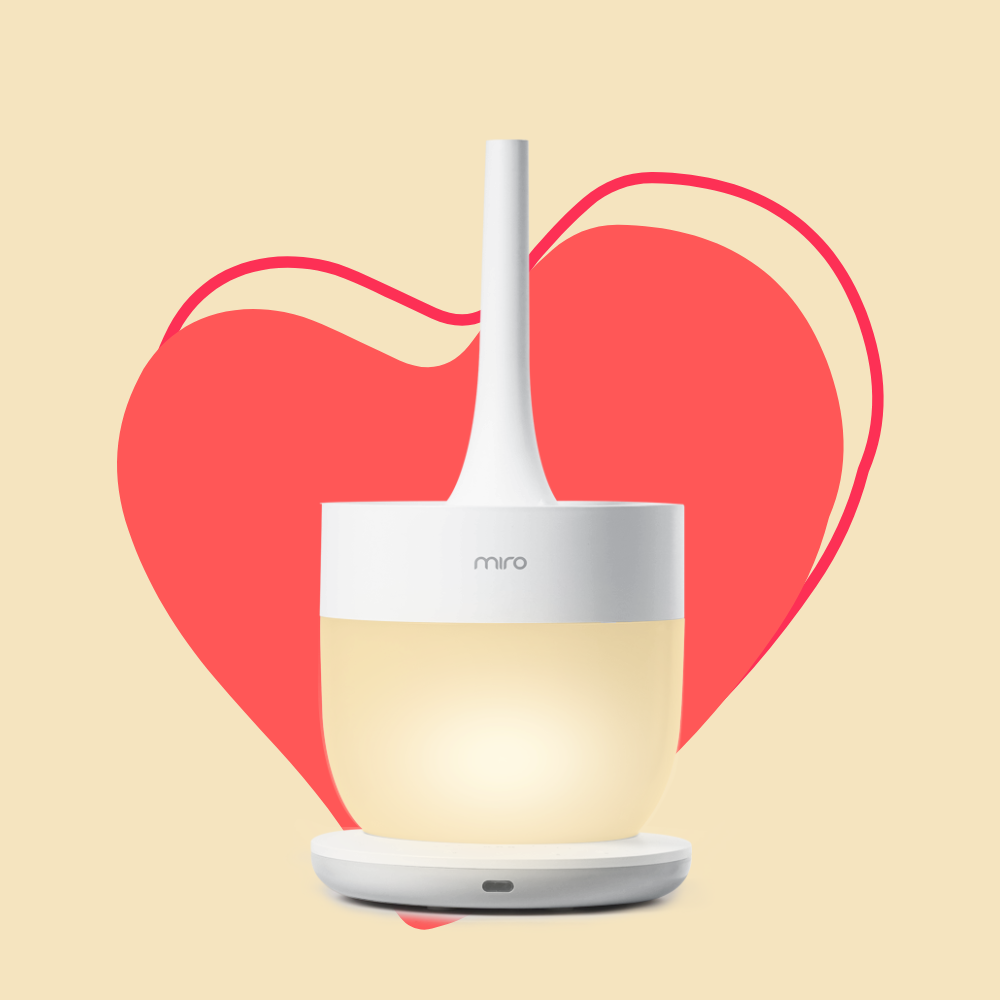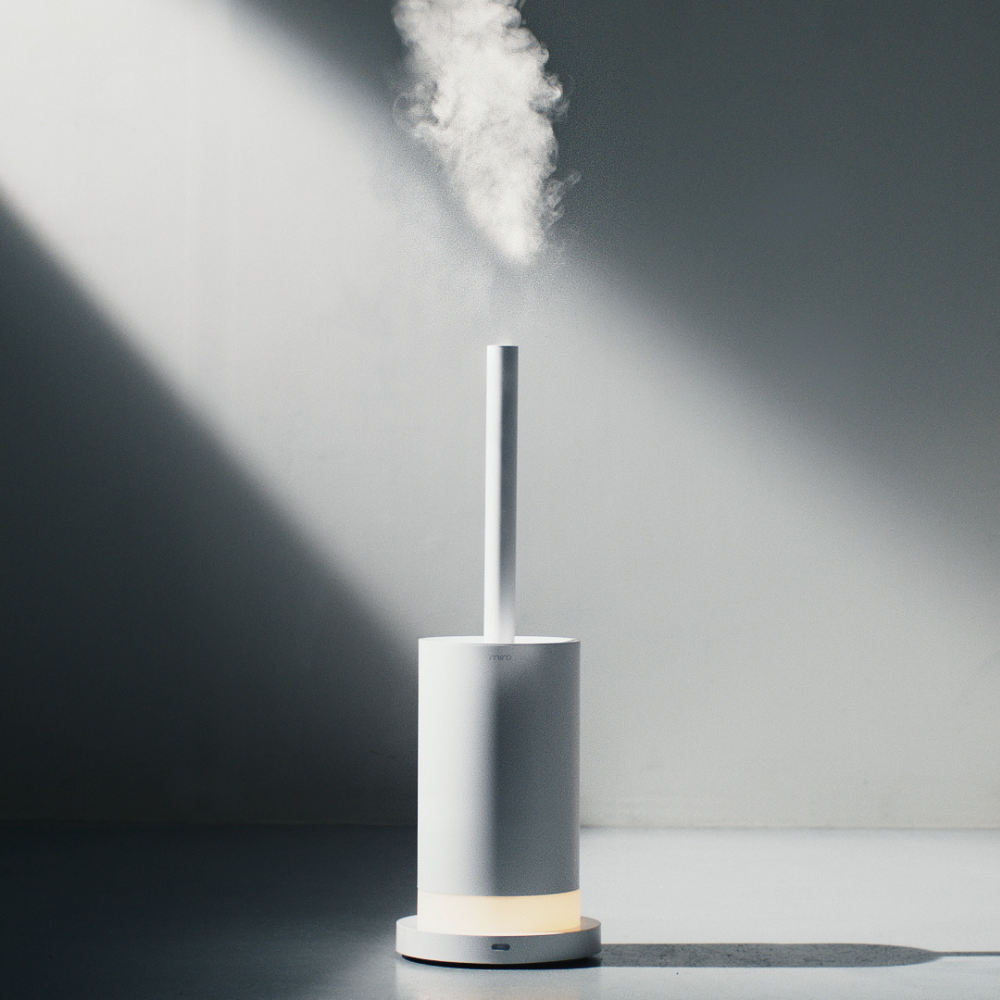
Diffuser vs. Humidifier: An Intimate Look at Your Air Quality Allies
Have you ever caught yourself amidst a heated battle between the dry, stale air of your surroundings and the soothing, aromatic air you aspire to breathe in?
Or perhaps you're just looking to rejuvenate your indoor atmosphere and create a healthier environment. If so, welcome! You're in the right place.
As we take a deep dive into the world of diffusers and humidifiers, you'll uncover the unseen heroes that work relentlessly to transform your indoor air from bleak to chic.
Diffuser vs. Humidifier: At a Glance
Before we delve deeper, here's a handy table for those who prefer a succinct summary.
| Factor | Diffuser | Humidifier |
|---|---|---|
| Purpose | To disperse essential oils into the air, creating a pleasant aroma and offering therapeutic benefits. | To add moisture to the air, counteracting dryness and creating a comfortable living environment. |
| Benefit | Enhances mood, promotes relaxation, boosts respiratory health. | Alleviates dry skin, eyes, and throat, reduces allergy symptoms, improves sleep. |
| Working Concept | Uses either ultrasonic vibrations, heat, or a fan to disperse essential oil particles into the air. | Uses either warm mist or cool mist technology to disperse water droplets into the air. |
| Types | Ultrasonic, nebulizing, heat, and evaporative diffusers. | Ultrasonic, evaporative, impeller, and steam vaporizers. |
| Size | Generally smaller, designed for a single room. | Varies greatly, from small, portable units to large console models. |
| Capacity | Typically holds between 100 to 500 ml of water (for water-based diffusers). | Ranges from 1 liter for small, portable units to several gallons for larger models. |
| Price | Starts at around $15 for basic models, with high-end versions exceeding $100. | Basic models start around $20, with larger, more advanced units going up to several hundreds of dollars. |
There you have it! But remember, we've only just scratched the surface.
Keep reading as we get ready to plunge into the depths of each category, elucidating your understanding and helping you choose the perfect air-enhancing ally for your home.
Diffuser vs. Humidifier: Purpose
Diffuser: A Symphony of Scents
Essential oil diffusers, often simply referred to as diffusers, primarily serve the purpose of dispersing essential oils into the air, transforming your space into a fragrant oasis.
They break down essential oil into micro-particles, which are then propelled into the air, blanketing your room with a pleasant aroma that can transport you to a field of lavender, a serene beach, or a tranquil forest, depending on the oil you choose.
But diffusers are not just about inducing olfactory delight. They play a significant role in aromatherapy, a holistic healing treatment that uses natural plant extracts.
Aromatherapy seeks to promote health and well-being, stimulate the brain, reduce stress, and enhance mood.
Furthermore, some essential oils like eucalyptus and peppermint have been found to aid in respiratory health, making diffusers a preferred choice for individuals aiming to reap therapeutic benefits alongside fragrance.
Humidifier: Your Moisture Maximizing Maestro
Humidifiers, on the other hand, have a different yet equally important role. Their core purpose lies in managing the humidity level in an indoor space by emitting water vapor or steam to increase moisture levels.
They come to the rescue in arid climates or during winter when heaters create dry indoor environments.
Having a balanced humidity level is crucial for human health. Dry air can lead to a series of discomforts such as dry skin, chapped lips, throat dryness, and even bloody noses.
It can also exacerbate respiratory ailments and allergies.
Beyond the individual, a good moisture level is also necessary for maintaining the health of houseplants and the longevity of wooden furniture and musical instruments, all of which can suffer in overly dry conditions.
Diffuser vs. Humidifier: Benefit
Diffuser: The Delightful Dynamo
The benefits of diffusers stretch beyond merely enhancing the aroma of a room. The major advantage is the positive impact on mental health.
Different essential oils cater to various needs: lavender for relaxation and sleep, citrus for invigoration and mood upliftment, peppermint for concentration, and the list goes on.
The health benefits also extend to the physical. Essential oils like eucalyptus can help clear up respiratory passages, while tea tree oil has antimicrobial properties, contributing to a cleaner, healthier indoor environment.
Humidifier: The Hydrating Hero
Humidifiers are a godsend for alleviating the discomforts associated with dry indoor air. By raising indoor humidity, they can soothe dry skin, relieve scratchy throats, reduce allergy and asthma symptoms, and even lessen snoring.
They can also help to reduce static electricity in the home, a small but welcome benefit in the winter months.
Furthermore, a properly humidified environment can promote better sleep, both by making the air more comfortable to breathe and by reducing snoring, leading to quieter, more peaceful nights.
Diffuser vs. Humidifier: Working Concept
Diffuser: Distributing Aromas
Essential oil diffusers operate on a fairly simple principle. Depending on their type, they break down essential oils into tiny particles, then disperse them into the air.
Ultrasonic diffusers use water and ultrasonic waves to do this, while nebulizing diffusers work without water, using an atomizer to create fine particles.
Heat diffusers use warmth to evaporate the essential oils, and evaporative diffusers use a fan to blow air through a pad or filter that contains the oil.
Regardless of the specific mechanism, the end goal is the same: to distribute a fine mist of essential oil throughout your room, creating a pleasing aroma and promoting various health benefits.
Humidifier: Moisture Masters
Humidifiers, by contrast, work by adding water vapor to the air. They accomplish this through a variety of methods, depending on their type.
Ultrasonic humidifiers use ultrasonic vibrations to produce a cool mist, while evaporative humidifiers blow air over a wet wick filter. Impeller humidifiers use rotating disks to create a cool mist, and steam vaporizers first heat the water, then cool it before releasing it into the air.
Each method effectively increases the humidity in your home, helping to combat dryness and create a more comfortable environment.
Diffuser vs. Humidifier: Types
Diffusers: A Spectrum of Selection
The variety of diffusers available on the market allows you to choose the one that best suits your needs. Ultrasonic diffusers are the most common, known for their quiet operation and use of water as a transference mechanism.
Nebulizing diffusers, on the other hand, are waterless and are often favored for their ability to distribute a more potent aroma. Heat and evaporative diffusers offer budget-friendly options that are easy to use.
Humidifiers: Pick Your Preference
Humidifiers also come in various types, each with their pros and cons. Ultrasonic humidifiers are popular for their silent operation and safety, as they don't involve heat. Evaporative humidifiers are self-regulating, increasing humidity only when needed.
Impeller humidifiers are kid-friendly with cool mist, while steam vaporizers, though less commonly used, are highly effective at humidifying but should be used with caution due to their use of heat.
Diffuser vs. Humidifier: Size & Capacity
Diffuser: Compact and Convenient
Diffusers are typically smaller and designed for a single room. They're perfect for personal use, whether at your desk, by your bedside, or in your yoga space.
In terms of capacity, water-based diffusers (like ultrasonic types) typically hold between 100 to 500 ml of water, affecting the duration they can run before needing a refill.
Humidifier: Small to Large Scale Solutions
Humidifiers have a much larger size range. Personal humidifiers are small and portable, while console models are larger and intended for humidifying an entire house or large space.
Capacity-wise, small units may hold around a liter of water, while larger ones can carry several gallons, allowing them to operate continuously for much longer periods.
Diffuser vs. Humidifier: Price
Diffusers: Budget to Boutique
The cost of a diffuser largely depends on its type and the features it offers. Basic models start around $15, while high-end models with features like timers, auto shut-off, lighting options, and designer aesthetics can go over $100.
Humidifiers: Affordable to Advanced
Humidifiers also offer a wide price range, from budget to premium. Basic models can be very affordable, while larger or feature-rich models (like those with built-in hygrometers or UV germ killing technology) can cost several hundred dollars.
Frequently Asked Questions
Can I Use a Humidifier as a Diffuser?
Yes, you can put essential oils in most humidifiers, allowing you to increase the humidity level of your room while also adding a lovely, relaxing aroma.
Can I Use a Diffuser and Humidifier in the Same Room?
Absolutely! Using both in the same room can help you reap the benefits of both increased humidity and aromatherapy. Just make sure they're properly maintained and used as per their individual instructions.
Do Diffusers Humidify?
While diffusers emit a mist, their primary role is not to humidify the room but to disperse essential oils. The amount of humidity they add is negligible compared to that of a proper humidifier.
Is it Safe to Use a Diffuser or Humidifier All Day?
While both devices are generally safe, they should be used responsibly. Overuse of a diffuser can lead to a too-strong scent or potential irritation, especially for people with allergies or asthma. Overuse of a humidifier can lead to too-high humidity, which can encourage mold growth.
Conclusion
The diffuser vs. humidifier debate isn't about which device is better overall, but rather which one is right for your specific needs.
If you're looking to create a pleasant aroma in your home or enjoy the therapeutic benefits of essential oils, a diffuser will be your best bet.
On the other hand, if dry air is your main concern, a humidifier will serve you well.
In essence, understanding the primary purpose, benefits, working concepts, types, sizes, capacities, and prices of these devices will go a long way in helping you make an informed choice.
Here's to creating a healthier, more comfortable, and more enjoyable indoor environment!


